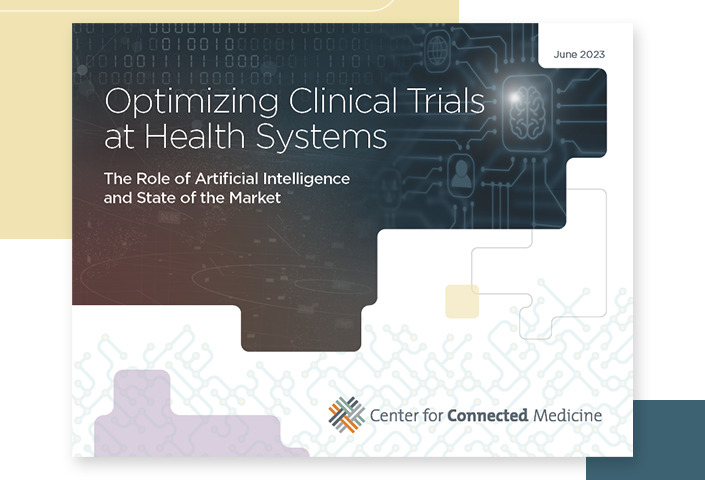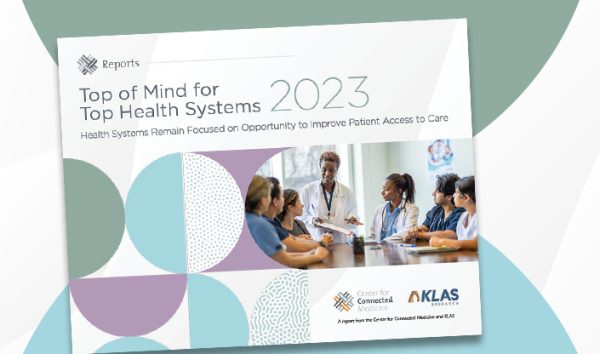Academic medical centers face challenges with clinical trials including finding the appropriate patients to enroll in the trials. Could artificial intelligence (AI) provide a solution for health systems to find study participants more quickly and easily?
A survey of health system leaders by the Center for Connected Medicine (CCM) and KLAS Research found that nearly two-thirds agreed that an AI solution could help them better identify, match, and recruit patients for clinical trials.
Results of the survey were published in a CCM research report, “Optimizing Clinical Trials at Health Systems: The Role of Artificial Intelligence and State of the Market.”
Clinical trials, which represent approximately one-third of all cancer research spending, can only be successful if clinicians are able to match patients with trials.
But this can be an immense challenge due to the current process that is extremely time and labor intensive. It can take clinical staff members one to two hours per patient to manually review medical records and cross-reference patients with available clinical trials.
The result is that while more than 50% of patients report being interested in joining clinical trials to treat their cancer, only 6.5% end up enrolling in a trial.
The CCM research found that health system leaders ranked the timely identification of patient cohorts as the biggest challenge they face in meeting the needs of clinical trial sponsors.
That is where AI and natural language processing (NLP) can offer a solution. These technologies can be used to scan medical records, including unstructured data in clinical notes, to match patients to trials more efficiently. Realyze Intelligence, a UPMC Enterprises portfolio company specializing in NLP, was launched to match patients to clinical trials.
“Realyze Intelligence is a software as a service company that integrates with patient records, applies a combination of artificial intelligence technology and clinical expertise to understand the complexities of patient histories, and matches patients with clinical trials,” Realyze Co-Founder Aaron Brauser said.
Cancer patients have extremely long and complicated histories, much of it captured in unstructured data in the form of notes from doctors, pathologists, and other clinicians. Further, patient conditions are changing over time and new information is being added to their records constantly.
Realyze Intelligence’s technology reads, analyzes, and summarizes a patient’s complex records containing large volumes of both unstructured and structured data.
“But that’s only half the story, because once you have that data, you need to normalize it and then understand clinically what that means. And that’s where we use our clinical expertise and modeling on top of that to extract all the details about those patients at that specific time before their cancer progresses,” Brauser said.
Once patients are matched to clinical trials Realyze Intelligence software provides the clinicians with an easy-to-read summary of a patient’s history, a list of clinical trials they may be well matched to, and notes to discuss in the next appointment.
Read more about the CCM report and download a copy.
Learn more about Realyze Intelligence.




